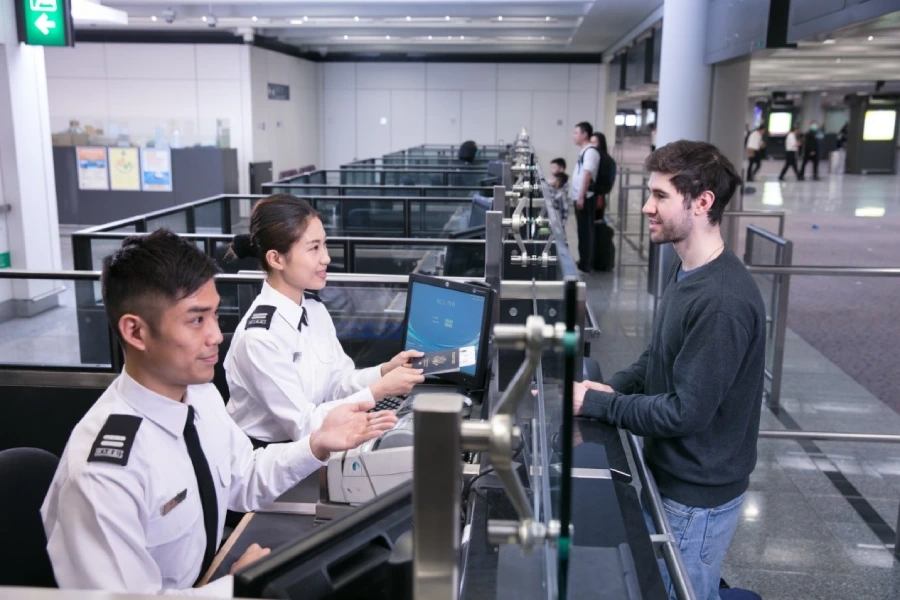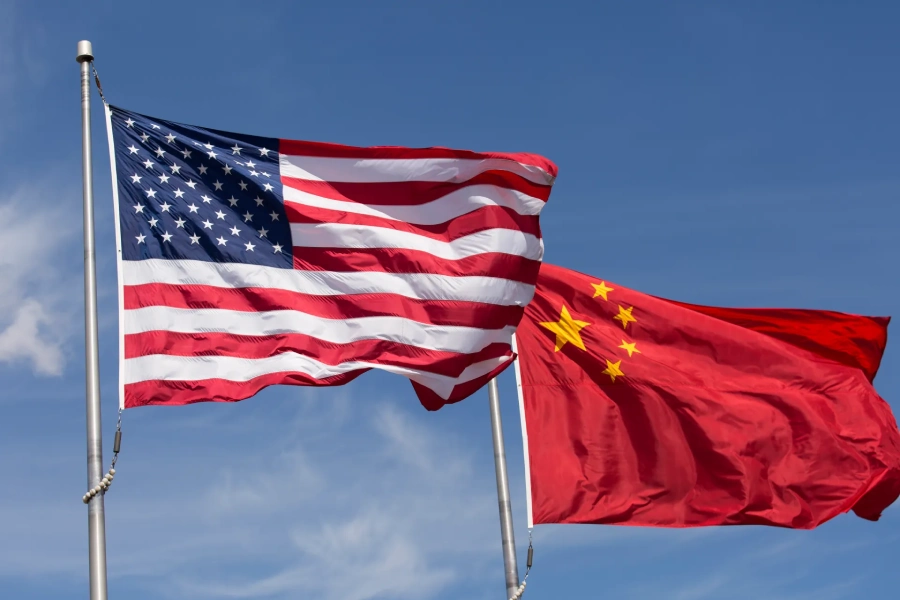As the United States raises the cost of its H-1B visa, China has introduced a brand-new immigration pathway: the China K Visa. For the first time in over a decade Beijing has expanded its visa system to attract foreign science, technology, engineering and mathematics (STEM) professionals. Beyond the headlines, the K Visa raises important legal questions about eligibility, employment rights, residency options and intellectual property protections. This article explores these issues in depth for students, graduates and employers considering the programme.

What Is the China K Visa?
The China K Visa is a new immigration category designed for young foreign STEM professionals and graduates. Unlike traditional work permits or student visas, the K Visa allows entry, study and work without a pre-arranged job offer or sponsoring employer. This is a striking departure from the standard Z (work) or X (study) visas, which require proof of employment or enrolment before arrival.
From a legal perspective, the K Visa is best understood as a hybrid of a work and study permit. It allows the holder to live in China while looking for jobs or conducting research, yet it is issued under the same administrative framework as the 2013 Foreigners Entry–Exit Regulations. Understanding these underlying rules is crucial for compliance.
China K Visa Legal Requirements: Eligibility and Documents
While the policy is new, several legal requirements are already clear:
-
Education: At least a bachelor’s degree in a STEM discipline from a recognised university or research institution.
-
Age and Experience: Applicants must meet age, educational background and work-experience thresholds set by Chinese authorities, although exact limits remain unpublished.
-
Supporting Documents: Degree certificates, proof of ongoing research or study, a valid passport and health documentation.
-
Security Review: Like other visas, the K Visa is subject to background checks and potential national security screening.
Because the official criteria are still vague, applicants should expect additional guidelines on age caps, minimum GPA or language proficiency. Keeping copies of all supporting evidence is essential for legal compliance and future renewals.
Employment Rights Under the China K Visa
One of the most appealing features of the China K Visa is the absence of a mandatory sponsoring employer. However, this also raises legal issues:
-
Labour Contracts: Holders must still sign lawful employment contracts with Chinese entities before starting work. The Labour Contract Law applies equally to foreign workers.
-
Taxes and Social Insurance: Foreigners employed in China are generally subject to income tax and social insurance contributions unless exempted by treaty.
-
Termination and Renewal: If employment ends, the visa holder must either secure a new job within the allowed period or risk cancellation.
Because the K Visa blurs the line between work and study, individuals should seek legal advice on payroll obligations and visa conditions before accepting offers.
China K Visa and Residency or Citizenship Pathways
A common question is whether the China K Visa leads to permanent residency or citizenship. Under current law:
-
Permanent Residency: China grants “green cards” only under limited circumstances such as high-level talent or large investors. The K Visa does not automatically create a pathway to permanent residence.
-
Citizenship: China does not offer naturalisation to foreigners except in rare cases, and dual nationality is not recognised.
Therefore, while the K Visa opens the door to short- and medium-term employment, applicants should not assume it will result in a long-term immigration status comparable to the U.S. green card.
Intellectual Property and Confidentiality Issues
Foreign STEM professionals often work on sensitive research. Under Chinese law:
-
IP Ownership: In general, inventions created during employment belong to the employer unless otherwise agreed.
-
Technology Transfer: Some sectors require government approval for exporting research results or sensitive technology.
-
Non-Disclosure Agreements: These are enforceable under Chinese contract law but must be clearly drafted in Mandarin.
Applicants should negotiate IP clauses carefully and understand local regulations on data security and state secrets before beginning any project.
Discrimination, Language and Cultural Barriers
The China K Visa targets “young” talent, which could raise concerns about age discrimination under international norms. Although Chinese law prohibits employment discrimination on several grounds, enforcement for foreign workers can be inconsistent.
Language is another barrier. Most Chinese tech companies operate in Mandarin, and official documents must be filed in Chinese. While no law requires Mandarin proficiency for the K Visa, lack of language skills may limit job opportunities and could indirectly affect visa renewals tied to employment.
Legal Risks and Geopolitical Considerations
Geopolitical tensions may also influence the programme. The government has discretion to deny or revoke visas on national security grounds. For example, political tensions between China and an applicant’s home country could result in tighter quotas or enhanced screening. Applicants should:
-
Register promptly with their embassy upon arrival.
-
Keep employment and immigration records up to date.
-
Be aware of exit restrictions in sensitive cases.
Such steps help reduce legal risk while living and working in China.
Comparing China K Visa and U.S. H-1B Visa
A key reason the China K Visa attracts attention is its contrast with the U.S. H-1B visa:
| Feature | China K Visa | U.S. H-1B Visa |
|---|---|---|
| Sponsorship | No employer needed to enter | Employer sponsorship required |
| Cost | Low application fee | $100,000 annual fee under new rules |
| Quotas | Not yet announced | 85,000 cap, lottery system |
| Residency Path | No direct path | Often leads to green card |
| Language | Mandarin barrier | English environment |
This comparison highlights that the K Visa is not a perfect substitute but may appeal to graduates seeking flexibility and lower costs.
Compliance Tips for China K Visa Holders
-
Track Policy Updates: Because the K Visa is new, regulations may change quickly.
-
Consult Legal Experts: Immigration attorneys familiar with Chinese labour law can clarify grey areas.
-
Protect IP Rights: Use clear contracts to specify ownership of research results.
-
Plan Long-Term Status: Understand that the K Visa is a temporary measure unless converted to another visa or permanent residence.
Conclusion
The China K Visa represents a bold move by Beijing to position itself as a global technology hub. By waiving the traditional job-offer requirement, China is signalling openness to foreign talent just as other countries tighten immigration channels.
However, potential applicants should approach the programme with a clear understanding of legal requirements, employment rights, IP rules and residency limitations. The K Visa can be an excellent short-term opportunity for STEM professionals willing to navigate China’s legal system and cultural landscape, but it is not a guaranteed pathway to permanent settlement.
FAQ
Q1: What is the China K Visa?
A: The China K Visa is a new visa for foreign STEM graduates, allowing entry, study, and work in China without a job offer.
Q2: Who is eligible for the China K Visa?
A: Young STEM graduates with at least a bachelor’s degree from a recognized university or research institution.
Q3: Does the China K Visa lead to permanent residency?
A: No, the K Visa does not automatically provide permanent residency or citizenship in China.
Q4: Can K Visa holders work without a sponsoring employer?
A: Yes, K Visa holders can seek employment without pre-arranged sponsorship, but must comply with Chinese labour laws.
Q5: How does the China K Visa compare to the U.S. H-1B Visa?
A: Unlike the H-1B, the K Visa requires no employer sponsorship, has lower fees, but does not offer a direct path to a green card.
Q6: Are there language requirements for the K Visa?
A: No formal Mandarin requirement exists, but lack of language skills may limit job opportunities.
Q7: What legal precautions should K Visa holders take?
A: Keep all documentation, consult immigration attorneys, understand IP rights, and track employment and visa conditions.

